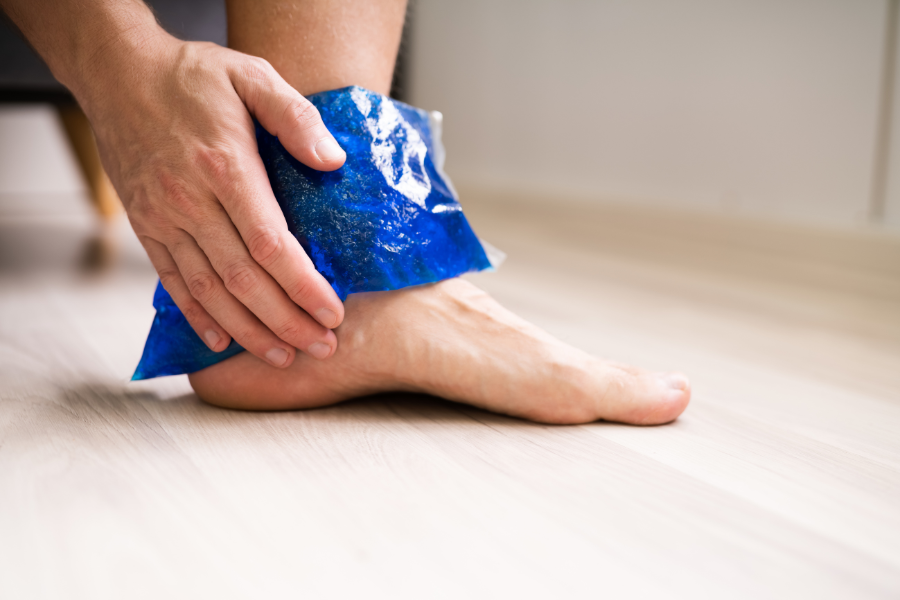Does Early Sports Specialization Actually Give You An Edge?
- mtscait
- Oct 10
- 4 min read
Working as a physical therapist and in the sports world, I hear of athletes focusing on their sport with hopes and dreams of getting a college scholarship or playing pro. But does early sports specialization actually give you an edge?

First - What is sports specialization? The Jayanthi scale measures it:
-year round (at least 8 months of the year) training
-choosing a main sport
-quitting all other sports to focus on 1 main sport
Just one of those factors would be “low” specialization, 2 is “moderate,” and 3 is “high.”
Early specialization is generally considered 16 and younger, but especially 12 and younger.
Why do athletes specialize?
Most hold the belief that focusing on one sport will help them get to the next level: if I play year round, I will improve my skills and get good enough for the varsity team/college team/professional team!
Many will get pressure from their teams - I remember hearing in high school if swimmers weren't on the club team (that met year round besides school swim season) that you had no shot of making the varsity team. Part of this was actual skill, and part of it was pressure from the coaches!
While there is some truth to improving skills while playing more, most of the actual data we have actually doesn't support playing just one sport all year round in order to get to college:
Only about 7% of high school athletes make a college variety team, and only about 2% get a scholarship.
Almost 95% of collegiate specialized athletes had previously played another organized sport before college.
About 45% of the college athletes played multiple sports up to age 16, where the mean age of specialization was just under 15 years old.
~17% of athletes of that 45% specialized at 13 or younger.
People will falsely believe that playing their sport more will increase your chances of playing on a college team. If we look at the numbers...the majority of college athletes played more than one sport up until late high school or college!
What are the risks of early sports specalization?
-Serious overuse injuries (that require 1 month or more off for recovery) have been noted more frequently in specialized youth athletes in individual sports.
Especially those participating in more hours of sports per week than their age in years.
-Psychologically, there can also be issues around social isolation, perfectionism, stress from unrealistic expectations set by parents or coaches, maladaptive coping strategies, loss of motivation, mood disturbances, and ultimately burnout.
-Athletes who are participating at higher competition levels have an increased injury incidence.
-Athletes with higher volumes of training have an increased incidence of injury as well.
What does this all mean? Dropping to just one sport for the majority of the year doesn’t significantly increase your chances to go to college for that sport. If anything, specializing in one sport before the age of 16 is actually a risk for issues.
What if the athlete is already specialized? Well, the American Academy of Pediatrics and National Athletic Trainers’ Association do have recommendations for athletes who specialize:
Take at least 3 nonconsecutive months off in 1-month intervals each year.
Young athletes should take 1 to 2 days off per week to ensure adequate recovery.
My suggestion for athletes who are already specialized? Can you find a sport that fills in the gaps to play for fun? For example, a swimmer can play tennis or pickle ball with friends or in a league. It includes rotation and lateral movements, which swimming does not have a lot of. Adjusting training volume so the athletes have full recovery, and making sure they are strong and balanced throughout their body is also important. Physical therapy can be an important piece of the puzzle for athletes working so hard all year round.
What’s my overall suggestion? Don’t specialize! From my perspective, I usually don’t see athletes who are doing multiple sports - they aren’t getting hurt as often or as seriously. I see baseball players who have been pitching since they were 10, I see soccer players who play on 3 teams, I see football players who train 12 months of the year and don’t do another sport. Figuring out other sports and unstructured play, training volume, and planned recovery is the best thing you can do for your athletes.
Main references for this article:
About the author: Dr. Caitlyn Hauswirth-Varis, PT, DPT, OCS, CFMT, CF-L1

Caitlyn is board certified in all things orthopedic physical therapy. She is a former D1 runner, multiple half marathon finisher, club ultimate frisbee player, and current high school track and field coach. She was a 3 sport varsity athlete in high school and didn't specialize in her event until college. She continues to compete now as a masters track and field athlete, as well as playing ultimate frisbee.
Disclaimer: This blog post is for informational purposes only and does not substitute for professional medical advice. Please consult with a qualified healthcare professional for personalized guidance.
.png)



Comments